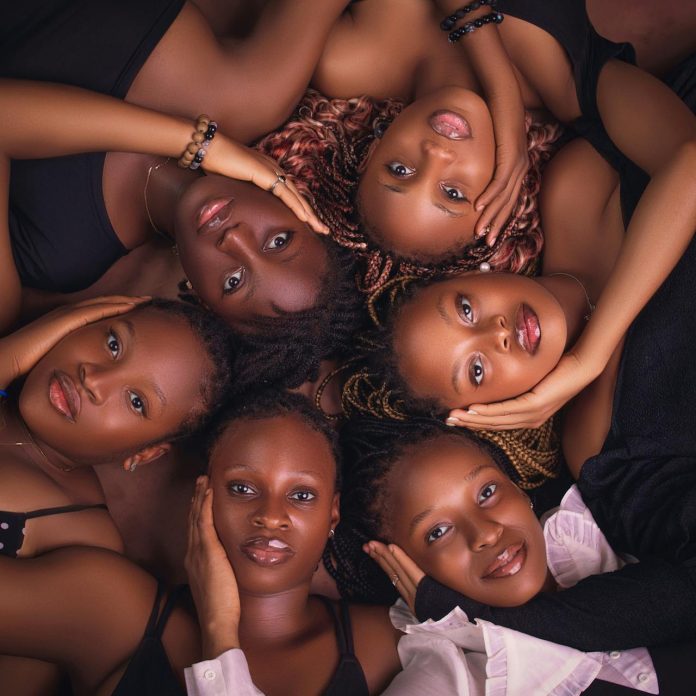On a Sunday afternoon in Nairobi’s Central Business District, a group of young women sit outside a salon, their braids swaying in the breeze as they scroll through TikTok videos of hair tutorials. The laughter, the heated debates about which stylist is “worth the price,” and the casual swapping of wigs capture something essential about hair in this city: it is never just about hair.
In Nairobi, hair is both deeply personal and unmistakably political. From school rules that force girls to shave their heads bald, to office cultures that quietly police Afrocentric styles, to the booming wig and weave economy worth billions of shillings annually, hair decisions carry weight. They signal class, identity, defiance, or aspiration.
“People always assume hair is vanity,” says 27-year-old stylist Winnie M., who runs a thriving braiding business in Umoja. “But every time a woman sits in my chair, it’s a statement. A short natural cut says something different from waist-length faux locs. Even shaving your head bald says something.”The Colonial Legacy
The roots of hair politics in Kenya stretch back to colonial rule. Mission schools discouraged traditional hairstyles, branding them “uncivilized.” European standards of grooming were introduced as markers of respectability. Straightened hair became associated with modernity, while natural textures were framed as backward. That legacy remains in subtle but pervasive ways.
Even today, some employers in Nairobi still expect “neat” styles, often code for straightened or contained hair. Women have shared stories of being quietly told to avoid Afros or colorful braids in interviews. The message is clear: professionalism is still tethered to Eurocentric standards.
Yet, just as global conversations on natural hair and Black beauty surge, Kenyan women are reclaiming autonomy over their heads. Walk into a salon in Kilimani, Eastleigh, or Kenyatta Market and you’ll see it all: giant Afros, neon-colored wigs, goddess locs, intricate cornrows, and bold bald cuts.
The economics of hair in Nairobi is staggering. Weaves and wigs are imported in bulk, braiding hair is a constant in marketplaces, and salons are some of the busiest small businesses. According to local traders, premium human hair wigs can cost upwards of KSh 80,000, more than some monthly salaries. Meanwhile, braiding services, while relatively cheaper, still require hours of labor, with stylists developing reputations like celebrity chefs.
But the hustle extends beyond salons. Social media has birthed a wave of influencers who review hair products, showcase styles, and set trends. On TikTok, Kenyan creators rack up millions of views with “hair transformation” videos, and Instagram boutiques ship wigs to clients as far as London and Dubai.
For many Nairobi women, embracing natural hair is a quiet rebellion. “I cut my relaxed hair in 2019 and went natural,” says Grace W., a lawyer. “At first, colleagues made jokes. One even asked when I’d ‘finish growing it out.’ But over time, they realized it wasn’t a phase. It’s about owning myself as I am.
”The natural hair movement, while global, carries unique weight in Kenya, where conformity is often prized. It challenges not only colonial legacies but also class narratives. Short, natural hair has historically been associated with “struggling” women who couldn’t afford salon upkeep. Reclaiming it as stylish flips that stereotype on its head.
At the same time, wigs and weaves remain a powerful tool of self-expression. Some women wear them for convenience, others for the thrill of reinvention. In Nairobi’s cosmopolitan spaces, no one blinks at a colleague showing up with red curls on Monday and a sleek bob on Friday.
Ultimately, hair in Nairobi is about freedom. It’s about how women navigate expectations from society, workplaces, partners, and even family. It’s about pushing back against rules that tell girls to shave their heads or mothers that they must “look a certain way.” As stylist Winnie puts it: “Hair is our crown. But it’s also our story. Every braid, every wig, every cut, it’s saying something.” In a city where style doubles as survival, hair isn’t just beauty. It’s politics, economy, history, and identity, woven strand by strand into everyday life.







